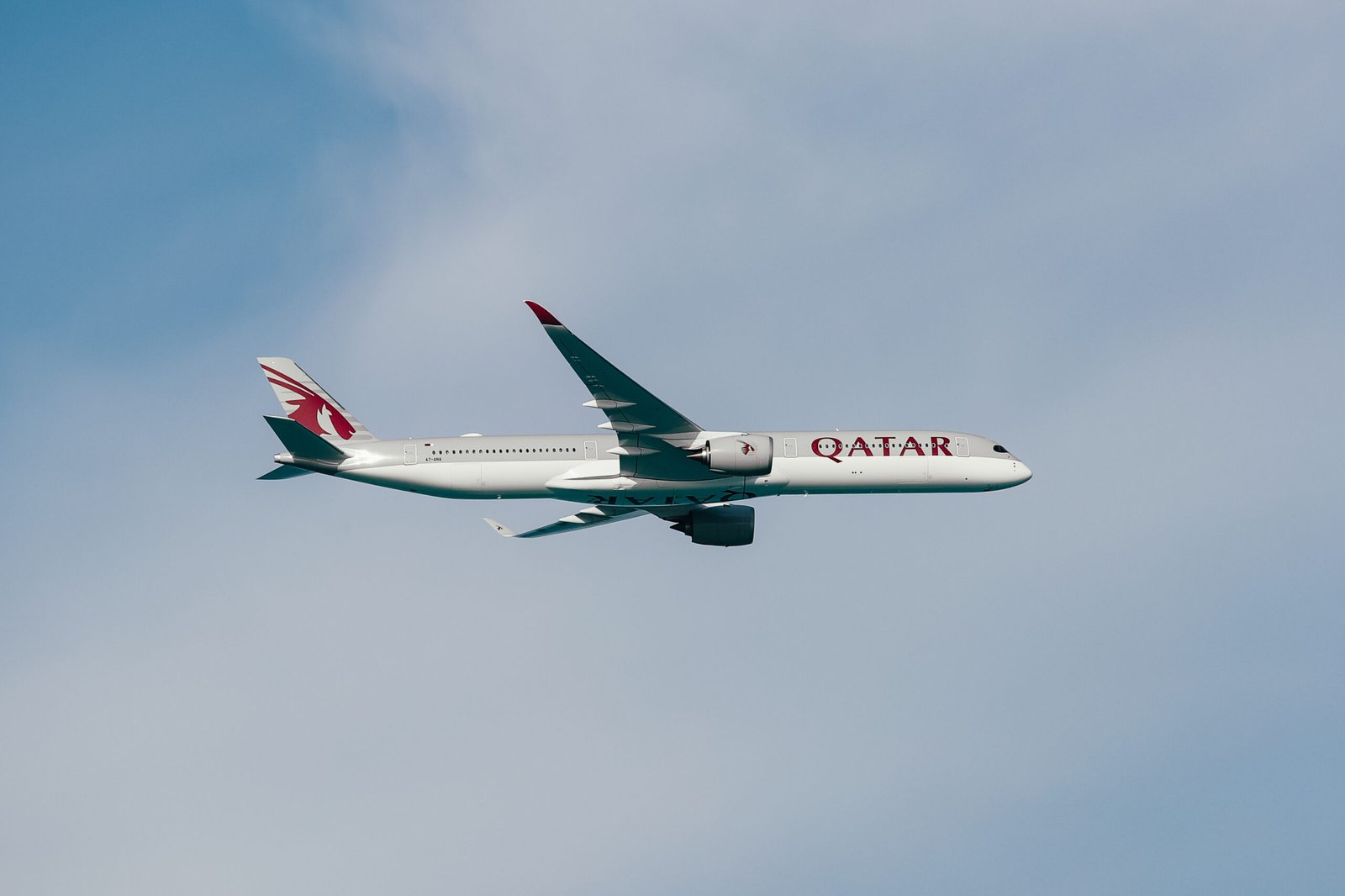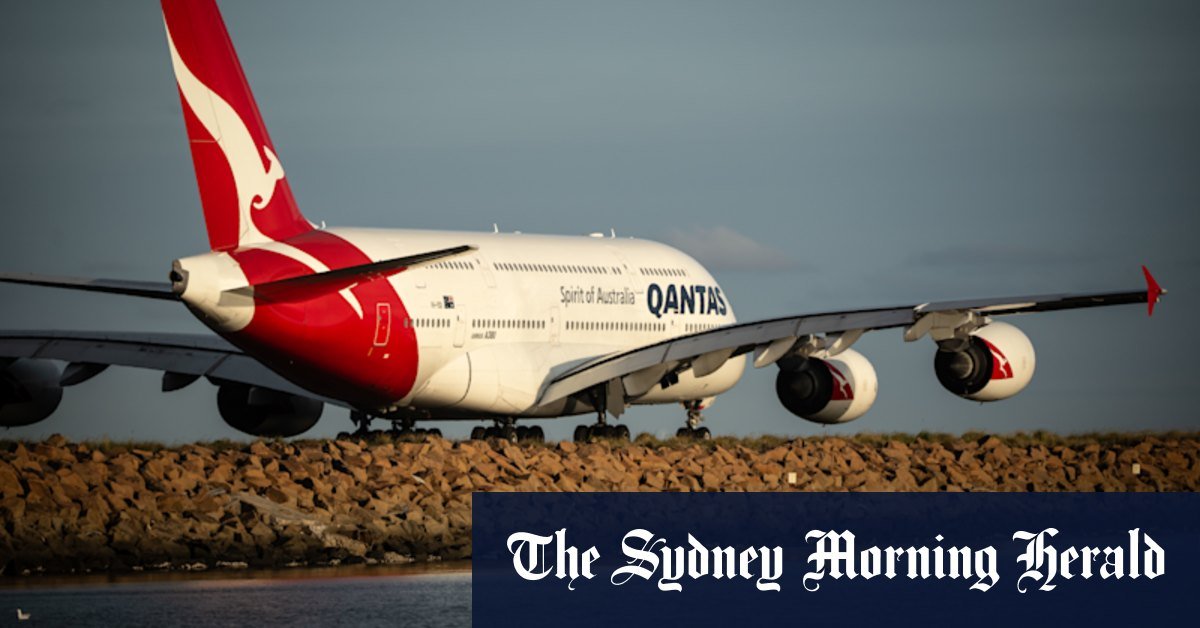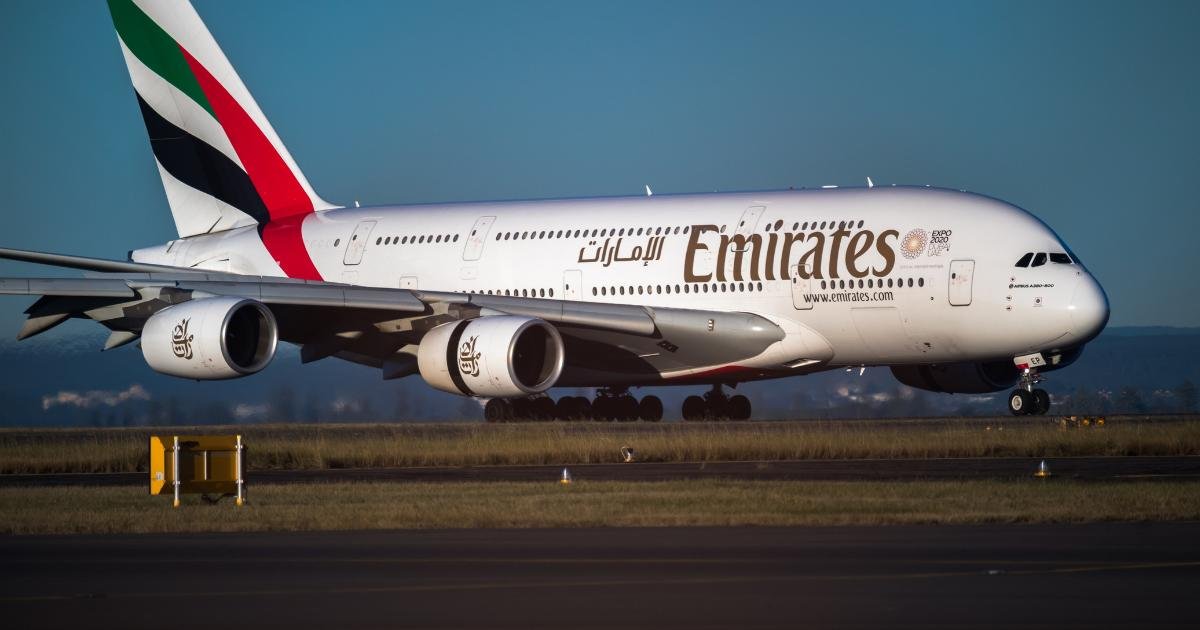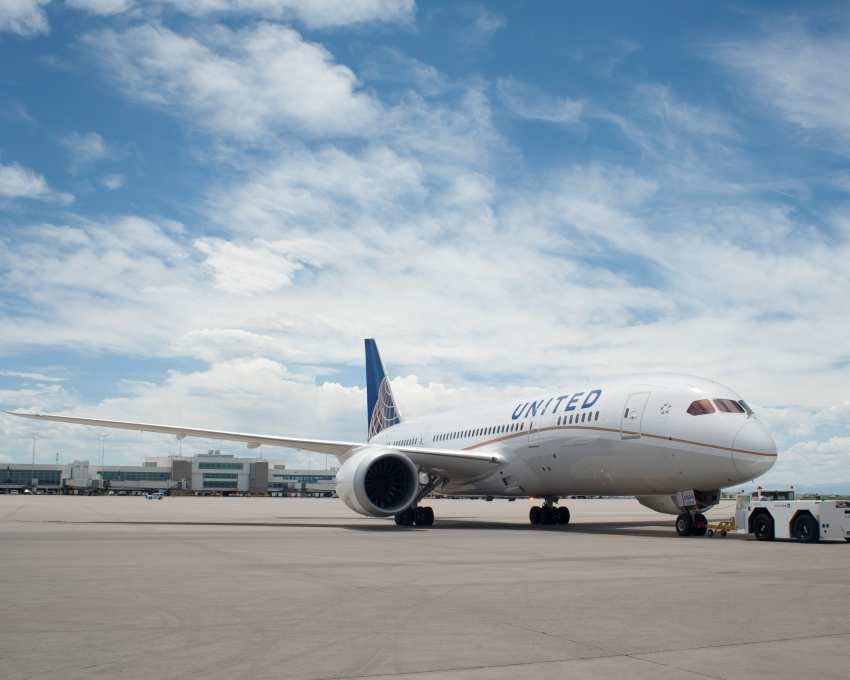Flight Buzz
Qatar Airways will increase flights to more than 15 destinations this winter – Travel Radar

Qatar Airways introduced its 2025 winter flight schedule. The airline will increase flights to over 15 global destinations, marking up to 10 daily flights to London.
Expanded Routes and frequencies by region: Europe and the Americas
In Europe, flights to Berlin and Frankfurt will each see their weekly flights rise to 21, up from 18. Flights to Madrid and Dublin will increase from 14 to 17 per week.
In particular, for destinations in the UK, London Heathrow, one of Qatar Airways’ busiest routes, will expand from eight daily flights to up to 10, which is complemented by British Airways’ double daily flights. Flights to another large city in the UK, Manchester, will expand from 21 weekly flights to up to 24, reinforcing the airline’s strong presence in the UK.
In the Americas, São Paulo will see a boost from 14 to 18 per week, and flights to Toronto will increase from five to seven each week.
Expanded Routes and frequencies by region: Asia and Africa
In Asia, flights to Tokyo Narita will increase from 11 weekly flights to up to 14, and Phuket will grow from three daily flights to up to four. The Maldives, a popular holiday destination, will also benefit from an increase to four daily flights from three.
In South Africa, the flights to Cape Town will increase from 10 per week to up to 12, beneficial for travellers to connect to one of South Africa’s most popular tourist and business destinations. Another important capital in the country, Johannesburg, will see a boost from 14 weekly flights to 18.
To Africa, the flights to Casablanca, the largest city of Morocco, will increase from four to five per week.
Expanded Routes and frequencies by region: Middle East
Closer to the airline’s home, Sharjah will experience a significant jump from three daily flights to up to seven. Flights to Abu Dhabi, at the same time, will increase from five daily flights to six.
Qatar Airways Chief Commercial Officer Thierry Antinori said:
“Qatar Airways is consistently witnessing a steady rise in demand for our 5-star services to some of the most prominent destinations in the world, most notably for London, Dublin, Cape Town, and São Paulo. This winter, in partnership with Qatar Airways, Virgin Australia will launch flights from Melbourne to Doha, increasing capacity to three daily flights between the two cities. Qatar Airways will also restart services to Canberra, reinforcing its commitment to enhance connectivity between Australia and the world.”
What do you think of Qatar Airways’ winter expansion? Are you planning to travel on one of these upgraded routes? Let us know your thoughts in the comments below!
Flight Buzz
MP flight policy review to end bureaucrats accepting flight upgrades

“When accepted, upgrades should be declared consistent with the [public service] guidance on gifts and benefits, and … officials must not accept any upgrade to first class,” the report states.
The department also said it would publish travel usage and expenditure reports, including the carriers used and costs incurred, from early next year.
“These transparency recommendations are intended to provide greater accountability to the public on Commonwealth travel spend,” the report states.
The report did not recommend limiting access to membership to lounges, despite calls from some parliamentarians for the perk to be banned.
Independent MPs, including Kate Cheney and Helen Haines, gave up their Chairman’s Lounge membership in the furore following the release of Aston’s book – The Chairman’s Lounge – last year. Others, including Allegra Spender and David Pocock, have called for the memberships to be banned for MPs.
Senior regulators, including top staff at the Australian Competition and Consumer Commission, resigned from the Chairman’s Lounge in November.
The government has rejected other recommendations, including a call for public servants to be required to use economy rather than business class on flights of less than three hours, which could save up to $4 million a year on domestic flights.
Loading
“While there can be operational requirements to use business class on longer flights where government officials are expected to rest on the flight and arrive and commence work immediately, there are few operational requirements for shorter flights, especially those under 3 hours,” the report states.
The department said in a document responding to the report that the “current settings are appropriate”.
A recommendation for contracted travel management companies to be required to offer a broad range of options for international flights and “strongly encourage” the use of existing flight credits before spending more, would be supported, the department said.
Albanese said in October last year that his flight upgrades had been documented appropriately.
“Every single thing has been declared, every single thing has been declared, which is why it has been reported on, and it is appropriate that those declarations occur,” he said. Other politicians, including Nationals senator Bridget McKenzie, had to apologise and declare flight upgrades that they had previously omitted.
Qantas and Finance Minister Katy Gallagher’s office were contacted for comment.
Cut through the noise of federal politics with news, views and expert analysis. Subscribers can sign up to our weekly Inside Politics newsletter.
Flight Buzz
Emirates to start fourth daily flight from Dubai to Gatwick

The new route, named EK069/070, will launch on February 8, 2026, and will offer more travel options for passengers.
The extra service increases the airline’s total flights to London to 12 per day, spread across Gatwick, Heathrow, and Stansted.
Flight EK069 will take off from Dubai at 5.05pm, landing at Gatwick at 8.50pm.
The return flight, EK070, will depart Gatwick at 11.55pm, arriving in Dubai at 11am.
The new service will be the last flight of the day between the two cities, offering convenient departure and arrival times for passengers.
Arriving in Dubai at 11am allows tourists to check into their hotels and start their activities early.
The late evening departure from Dubai gives passengers more time to wrap up business meetings, shop, or enjoy leisure activities before heading to London.
The Airbus A350-900 aircraft, used for the new service, will have a three-class configuration.
This includes 32 lie-flat Business Class seats in a 1-2-1 layout, 28 Premium Economy seats, and 238 Economy Class seats.
Passengers can also expect next-generation products and services, including wireless charging in Business Class, electric window blinds, digital inflight menus on ice screens and more.
Gatwick will be the second UK airport to welcome Emirates’ new A350 aircraft, after Edinburgh.
With the addition of the fourth daily flight, Emirates will now operate 140 weekly flights to eight major UK airports: Gatwick, Heathrow, Stansted, Manchester, Birmingham, Newcastle, Glasgow and Edinburgh.
These flights will be operated using a mix of A350s, A380s, and Boeing 777s.
Emirates’ new A350 aircraft also serves several global cities, including Lyon, Bologna, Dammam, Mumbai, Edinburgh, Bahrain, Colombo, Kuwait, Muscat, Tunis, Amman, Istanbul and Ahmedabad.
Travellers can book tickets on the Emirates website, the Emirates App, at Emirates retail stores, via the Emirates contact centre, or through travel agents.
The new flight aims to provide more flexibility and convenience to passengers travelling between London and Dubai.
Flight Buzz
United Airlines’ New Flight Rebooking System Sparks Outrage: Travelers Criticize Lack of Support After Delayed Flights and Frustrating Online-only Solutions

Wednesday, August 6, 2025
In recent years, United Airlines has prided itself on delivering improved customer service, offering travelers an experience that exceeded its competitors. However, this reputation is now being challenged as the airline faces a backlash following a particularly frustrating customer experience. The controversy began after a flight delay from Quebec City, which led to the traveler and their family missing their connecting flight at Newark International Airport.
The airline’s new rebooking system, which had been designed to streamline the customer service process, is now being slammed for leaving travelers stranded and unsupported. While the shift to digital-first solutions had promised efficiency, the reality has been far less favorable. The incident has sparked concerns about the growing reliance on technology at the expense of personalized service and human interaction—an issue that could have far-reaching consequences for the airline industry, particularly in how travelers experience disruptions.
The Shift from Personalized to Impersonal Customer Service
Traditionally, United Airlines was known for its quick, hands-on assistance during delays and flight disruptions. Travelers could typically expect immediate help from customer service agents, who would work swiftly to find a solution. Unfortunately, this once highly praised service model has been replaced by a digital-only system that is leaving passengers frustrated and dissatisfied.
In the Quebec City to Newark incident, the traveler’s family faced a significant delay during customs, causing them to miss their connecting flight by mere minutes. At what should have been a critical moment for customer service, the family was instead given a QR code and directed to a slow, impersonal rebooking website. They were left with no clear instructions on what to do next and no immediate human contact to resolve their situation.
While digital rebooking systems are often seen as more efficient and cost-effective for airlines, they can also alienate travelers when problems arise. In the case of United’s new system, the lack of real-time, human support made the rebooking process longer and more frustrating, with travelers experiencing significant delays in communication and receiving only generic responses from the airline.
Digital-Only Rebooking: A Growing Trend with Significant Consequences
The trend toward using technology to handle customer service is becoming more widespread across the airline industry. However, as airlines like United embrace this model, they risk alienating travelers who expect a more personalized experience. The desire for human interaction during stressful travel situations is not just a luxury; it’s a crucial aspect of maintaining trust and loyalty.
Digital-only rebooking systems, like the one used by United, are meant to streamline the process, saving time and costs for the airline. In theory, they provide passengers with the ability to manage their own rebooking without waiting in line or speaking to a customer service representative. However, in practice, tech-heavy solutions often lead to long waits, confusion, and a general sense of being abandoned in times of crisis.
In this case, after missing their connecting flight, the family was left to deal with a slow and unresponsive website. Instead of receiving immediate rebooking options or a clear path forward, they were forced to navigate a cumbersome process with minimal guidance. This lack of support is especially problematic in high-stress situations, where travelers need quick assistance to avoid further disruption to their plans.
Effect on the Travel and Tourism Industry: What This Means for Airlines and Customers
As travel disruptions continue to affect passengers worldwide, airlines need to reconsider how they handle customer service during these times. The increasing reliance on automated systems may help airlines cut costs and reduce the need for staff, but it also comes at the expense of personalized service. Customers expect more than just a quick solution to a problem—they expect empathy, understanding, and, most importantly, human interaction.
The backlash United Airlines is facing over its rebooking system highlights a broader issue within the travel and tourism industry. As travelers become more accustomed to using digital tools, they expect airlines to balance technology with a personal touch. Airlines that fail to provide a balance between the two risk losing customer loyalty, which could have long-term repercussions on the industry’s growth.
The trust that travelers place in airlines is not easily regained once broken. Delayed flights and missed connections are common occurrences in the travel industry, but the manner in which they are handled can make or break a customer’s experience. United Airlines, with its previously strong reputation for customer service, may now find itself in a difficult position as it grapples with the fallout from this rebooking debacle.
A Case for Balanced Innovation: Can Airlines Improve the Tech-Human Experience?
While technology is undeniably an essential part of the modern travel experience, the human element remains crucial, especially when things go wrong. The key takeaway from United Airlines’ recent incident is that airlines must find a way to balance innovation with the needs of their passengers. Digital tools should enhance, not replace, the human connection that customers expect when dealing with disruptions.
To avoid further damage to their reputation, United Airlines and other airlines adopting digital-only systems should consider implementing hybrid models where technology can assist customers, but human agents are readily available to step in when needed. For example, automated systems could provide travelers with initial options, but if a problem arises, passengers should be able to quickly access real-time support from a representative who can provide immediate assistance.
Moreover, airlines should focus on improving their online interfaces to make them more intuitive, ensuring that travelers can find solutions quickly without feeling lost or frustrated. A seamless blend of technology and human service would likely provide the best of both worlds—offering the convenience of automation while maintaining the personal touch that passengers need during times of uncertainty.
The Broader Implications: What This Means for the Future of Travel
United Airlines’ new rebooking system fiasco may be an isolated incident for now, but it reflects a larger trend in the travel industry. As airlines look to cut costs and streamline operations, many are moving toward digital-first models. While these systems have their benefits, they must be implemented with care to avoid alienating customers who still value the personal touch that has been a hallmark of quality service for years.
As travel and tourism continue to evolve, the industry needs to strike a balance between cutting-edge technology and personalized customer service. Innovations in tech should aim to make the travel experience easier and more convenient but must not replace the empathetic, human connections that passengers expect. The success of any airline or travel company in the future will depend on its ability to provide a seamless blend of both, ensuring that customers feel supported and valued at every step of their journey.
Conclusion: Restoring Trust Through Customer-Centric Solutions
The experience shared by a United Airlines passenger highlights a growing concern in the travel industry: technology is not a substitute for human care. While digital solutions can improve certain aspects of the travel process, they should never replace the human element that is essential in maintaining trust and customer satisfaction. In this case, United Airlines must recognize that a seamless customer experience requires both innovative tech and personal support, especially in times of disruption.
To rebuild customer loyalty and trust, airlines must carefully consider how they incorporate technology into their customer service strategies. A balance between automation and real-time assistance is key to ensuring that passengers feel supported—not just processed—when things go wrong. By prioritizing a customer-centric approach that integrates the best of both worlds, the travel industry can avoid further backlash and ensure that passengers’ needs are met with both efficiency and empathy.
Image Custody: United Airlines
-

 Brand Stories2 weeks ago
Brand Stories2 weeks agoBloom Hotels: A Modern Vision of Hospitality Redefining Travel
-

 Brand Stories2 weeks ago
Brand Stories2 weeks agoCheQin.ai sets a new standard for hotel booking with its AI capabilities: empowering travellers to bargain, choose the best, and book with clarity.
-

 Destinations & Things To Do2 weeks ago
Destinations & Things To Do2 weeks agoUntouched Destinations: Stunning Hidden Gems You Must Visit
-

 Destinations & Things To Do2 weeks ago
Destinations & Things To Do2 weeks agoThis Hidden Beach in India Glows at Night-But Only in One Secret Season
-

 AI in Travel2 weeks ago
AI in Travel2 weeks agoAI Travel Revolution: Must-Have Guide to the Best Experience
-

 Brand Stories1 month ago
Brand Stories1 month agoVoice AI Startup ElevenLabs Plans to Add Hubs Around the World
-

 Brand Stories4 weeks ago
Brand Stories4 weeks agoHow Elon Musk’s rogue Grok chatbot became a cautionary AI tale
-

 Brand Stories2 weeks ago
Brand Stories2 weeks agoContactless Hospitality: Why Remote Management Technology Is Key to Seamless Guest Experiences
-

 Asia Travel Pulse1 month ago
Asia Travel Pulse1 month agoLooking For Adventure In Asia? Here Are 7 Epic Destinations You Need To Experience At Least Once – Zee News
-

 AI in Travel1 month ago
AI in Travel1 month ago‘Will AI take my job?’ A trip to a Beijing fortune-telling bar to see what lies ahead | China

You must be logged in to post a comment Login